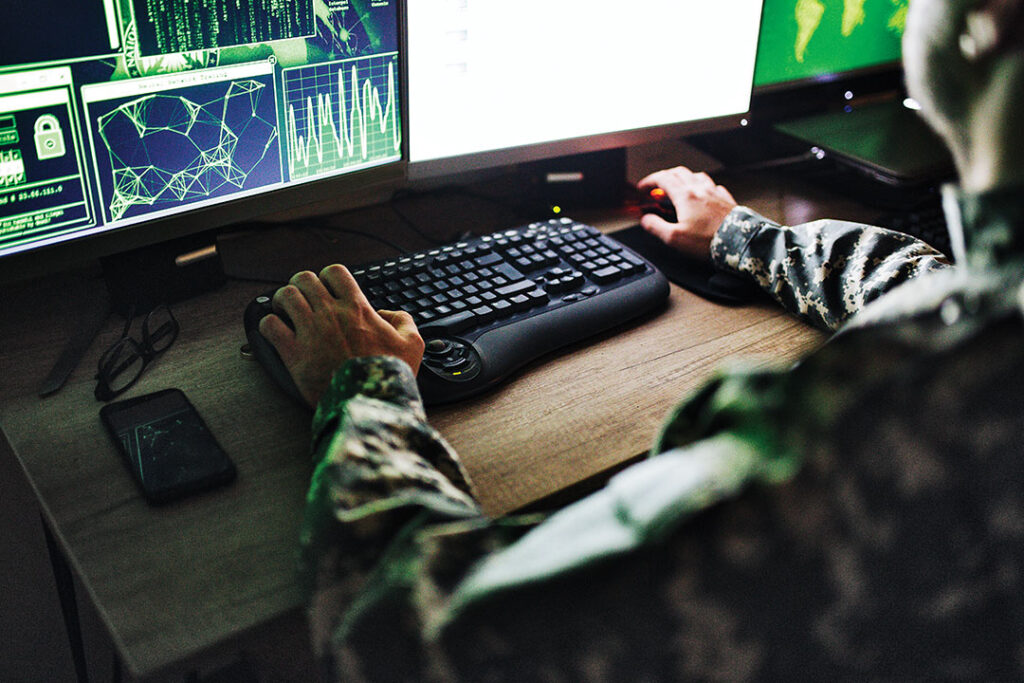U.S. Africa Command Staff
It no longer takes an army or even traditional weapons to attack a nation. Some of the most devastating attacks can be carried out using only a computer, a mobile phone or other off-the-shelf technology.
Often called “hybrid warfare,” this category combines conventional and unconventional attacks. It includes threats such as cyberattacks, disinformation or attacks on critical national infrastructure. Some hybrid attacks are obvious, others can go undetected for years.
Perpetrators view hybrid tactics as a relatively cheap way to make a big impact. The goal is to shake the stability of the targeted country.
Russia is one of the top global exporters of hybrid warfare; in recent years it has used this strategy to exert control over African governments. Its hybrid strategy aims to influence a country’s political, security, economic and social spheres. Russia deploys mercenaries with pledges of security, but their heavy-handed tactics end up destabilizing the country. It gains control of valuable natural resources and uses disinformation campaigns to sway public opinion in its favor. It has undermined elections and supported coups.
As threats multiply, African countries are looking for ways to protect themselves. One area of focus is adding cybersecurity capacity. The continent has more than 650 million internet users and only about 7,000 trained cybersecurity professionals. This lack of capacity leaves government agencies, businesses and critical infrastructure exposed. Another area is improved governance and security. Countries with weak or corrupt governments and an ineffective security sector are the most susceptible to outside interference. Finally, countries can make sure citizens have accurate information. In countries without a free and responsible press, citizens are easily manipulated by false claims. This environment allows disinformation campaigns to thrive.
These threats aren’t going away, and guarding against hybrid attacks must be a whole-of-society effort. By educating the public, elected officials and security professionals to recognize the threats, countries will be better positioned to withstand these attacks.

